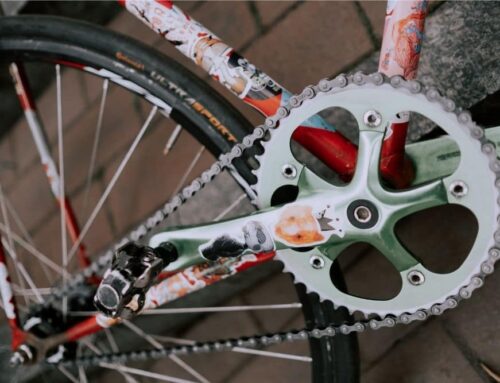Many people looking at buying a bike will be torn between exactly what type of bike will suit them best, and the sheer amount of marketing speak and technical jargon surrounding bikes can at times be totally overwhelming.One of the most versatile types of bike is the mountain bike, and it’s probably one of the most popular options for its ability to go almost wherever you want to take it!

This includes long, technical singletrack that snakes up and down some of the most challenging terrain in your area, or simple rides along a canal or promenade, as well as commuting!
The mountain bike can pretty much do it all, and while it may not perform as well as a road bike or dedicated commuter/tourer while on the road, using a mountain bike on the road is definitely something you can do, and it isn’t going to harm your bike or cause any issues whatsoever.
Think of it this way; if your mountain bike is designed to handle some of the most challenging terrain and conditions possible, it can definitely handle the relatively flat and smooth terrain that comprises most roads.
With that being said, there are certainly some limitations that come with using a mountain bike on the road, and these limitations can be exacerbated depending on the type of bike you use and what roads you’re using it on.
Hardtail mountain bikes
The humble hardtail mountain bike is one of the most versatile bikes in the world, and provides a great platform for mixed use riding.Hardtails get their name from the format of their suspension, as they use suspension forks of varying size and design over the front wheel of the bike, but have a rigid rear end to the frame which increases efficiency.
As far as mountain bikes go, hardtails provide the most versatile performance, and can handle most mountain bike trails quite capably, while also giving admirable performance on the road due to the fact they have a rigid rear wheel, where most of the power transfer comes from.
Related Articles:
Naturally, a hardtail won’t be as efficient for road riding as a dedicated fully rigid road bike or commuter and there are various reasons for this.
Even hardtail mountain bikes are designed to keep you on the bike on rough terrain, so the features such as the wheels and geometry are all geared towards rough terrain, which isn’t necessarily the most efficient for comfort and energy transfer, but is important to keep you balanced on hard trails.
These features are required for road riding, so naturally you will find yourself working slightly harder on roads using a mountain bike than you would on a fully rigid tourer or commuter, which have geometry and wheels designed for efficiency in power transfer, comfort, speed and air/road friction.
Some hardtails use front forks that have lockout, which makes them very rigid and almost as good as a fully rigid bike, however they still aren’t as efficient as a fully rigid bike, and these types of forks add weight that fixed forks don’t so you’ll still feel heavier and more sluggish, especially due to the width of mountain biking tires which create a lot of resistance on the road.
Full Suspension Mountain Bikes
In terms of full suspension mountain bikes, these can be used on roads, and like hardtail mountain bikes they won’t be damaged or get any issues in being used like this, as they are built very strong to withstand the harsh strain of mountain biking.
However full suspension bikes are even less efficient than hardtails as they use suspension of the rear wheel as well as the front wheel, meaning more of your pedal power is lost to sag and in the movement of the suspension, and less of your power is actually turning the wheels and moving you forward.
The advantages a full suspension have for mountain biking fully work against it while road riding, and they can feel uncomfortable and laborious to use on the road due to their increased weight, (even heavier than hardtail bikes) thick tyres and the soft suspension sapping your speed and pedal strokes.
Again, these bikes won’t be damaged by being used like this, its simply less efficient than using a full fixie such as a commuter bike or a tourer as these bikes are designed to be very efficient, carving through the air at high speeds on roads, giving little resistance and ensuring that all the power of your pedal stroke translates into the tarmac, making things much easier for you.
Again, some full suspension bikes use lockout and other fancy features to make them slightly more efficient on the road, however even with these features full suspension bikes struggle on tarmac and shouldn’t be used over long distances on the road more for the sake of the rider than for the sake of the bike, as you will open yourself up to discomfort as you try to ride in a relatively unnatural, uncomfortable and inefficient riding position.





